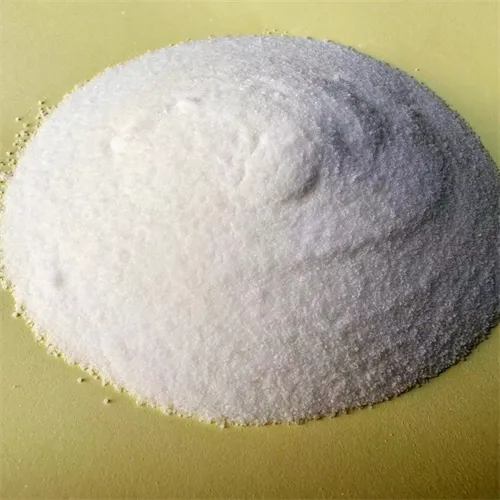Warning: Undefined array key "title" in /home/www/wwwroot/HTML/www.exportstart.com/wp-content/themes/1198/header.php on line 6
Warning: Undefined array key "file" in /home/www/wwwroot/HTML/www.exportstart.com/wp-content/themes/1198/header.php on line 7
Warning: Undefined array key "title" in /home/www/wwwroot/HTML/www.exportstart.com/wp-content/themes/1198/header.php on line 7
Warning: Undefined array key "title" in /home/www/wwwroot/HTML/www.exportstart.com/wp-content/themes/1198/header.php on line 7
- Afrikaans
- Albanian
- Amharic
- Arabic
- Armenian
- Azerbaijani
- Basque
- Belarusian
- Bengali
- Bosnian
- Bulgarian
- Catalan
- Cebuano
- China
- China (Taiwan)
- Corsican
- Croatian
- Czech
- Danish
- Dutch
- English
- Esperanto
- Estonian
- Finnish
- French
- Frisian
- Galician
- Georgian
- German
- Greek
- Gujarati
- Haitian Creole
- hausa
- hawaiian
- Hebrew
- Hindi
- Miao
- Hungarian
- Icelandic
- igbo
- Indonesian
- irish
- Italian
- Japanese
- Javanese
- Kannada
- kazakh
- Khmer
- Rwandese
- Korean
- Kurdish
- Kyrgyz
- Lao
- Latin
- Latvian
- Lithuanian
- Luxembourgish
- Macedonian
- Malgashi
- Malay
- Malayalam
- Maltese
- Maori
- Marathi
- Mongolian
- Myanmar
- Nepali
- Norwegian
- Norwegian
- Occitan
- Pashto
- Persian
- Polish
- Portuguese
- Punjabi
- Romanian
- Russian
- Samoan
- Scottish Gaelic
- Serbian
- Sesotho
- Shona
- Sindhi
- Sinhala
- Slovak
- Slovenian
- Somali
- Spanish
- Sundanese
- Swahili
- Swedish
- Tagalog
- Tajik
- Tamil
- Tatar
- Telugu
- Thai
- Turkish
- Turkmen
- Ukrainian
- Urdu
- Uighur
- Uzbek
- Vietnamese
- Welsh
- Bantu
- Yiddish
- Yoruba
- Zulu
Nov . 06, 2024 12:30 Back to list
xylitol faq
Understanding Xylitol Frequently Asked Questions
Xylitol is a sugar alcohol widely recognized for its sweetening properties and health benefits, particularly in dental care. This article addresses some common questions about xylitol, its uses, and safety.
What is Xylitol?
Xylitol is a naturally occurring sugar alcohol found in various fruits and vegetables. It is derived from xylose, a wood sugar, and is often extracted from birch trees or corn. With a sweetness comparable to that of sucrose (table sugar), xylitol is commonly used as a sugar substitute in sugar-free products, including chewing gum, mints, and toothpaste.
What are the health benefits of Xylitol?
One of the most notable benefits of xylitol is its ability to promote dental health. Research has shown that xylitol can help reduce the growth of cavity-causing bacteria in the mouth, decreasing the risk of tooth decay. It also stimulates saliva production, which helps neutralize acids produced by plaque and promotes remineralization of enamel.
Additionally, xylitol has a low glycemic index, making it a suitable alternative for individuals with diabetes or those looking to manage their blood sugar levels. Unlike sugar, xylitol does not cause a spike in insulin, allowing for better blood sugar control.
Is Xylitol safe to consume?
xylitol faq

Xylitol is generally recognized as safe (GRAS) by the U.S. Food and Drug Administration (FDA) when consumed in moderation. However, excessive consumption may lead to digestive issues, including gas, bloating, or diarrhea, particularly in individuals not accustomed to sugar alcohols. It is advisable to start with small amounts to assess tolerance.
Can pets eat Xylitol?
Pet owners should be particularly cautious with xylitol, as it is highly toxic to dogs. Even small amounts can lead to insulin release, resulting in hypoglycemia (low blood sugar), seizures, or even liver failure. If a dog ingests xylitol, immediate veterinary assistance is necessary.
How does Xylitol compare to other sweeteners?
When compared to other sugar substitutes, xylitol is unique due to its dental benefits. While some artificial sweeteners may offer low-calorie options, they do not have the same positive impact on oral health as xylitol. Additionally, xylitol is often favored over aspartame or saccharin by those seeking natural alternatives.
In Conclusion
Xylitol is a versatile sugar substitute with significant health benefits, particularly for dental care. As with any food ingredient, moderation is key. Understanding xylitol's properties, benefits, and safety considerations can make it a valuable addition to a balanced diet, whether for better oral health or as a low-glycemic alternative to sugar.
Latest news
-
Certifications for Vegetarian and Xanthan Gum Vegetarian
NewsJun.17,2025
-
Sustainability Trends Reshaping the SLES N70 Market
NewsJun.17,2025
-
Propylene Glycol Use in Vaccines: Balancing Function and Perception
NewsJun.17,2025
-
Petroleum Jelly in Skincare: Balancing Benefits and Backlash
NewsJun.17,2025
-
Energy Price Volatility and Ripple Effect on Caprolactam Markets
NewsJun.17,2025
-
Spectroscopic Techniques for Adipic Acid Molecular Weight
NewsJun.17,2025

